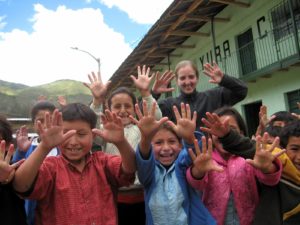Wash Your Hands
National Handwashing Awareness Week, according to some is December 1 through 7. Other websites state that it falls on the first full week in December, which would make it December 5 through 11 this year. Though it may seem that we can’t agree on when National Handwashing Awareness Week is, one thing we should agree on is the importance of washing our hands.
With COVID-19, there was a renewed focus on handwashing. Something so many of us claim to do was reinforced as a critical step in helping prevent COVID-19. And yet COVID-19 continued and continues to spread. Though handwashing is not the only thing to mitigate the spread of COVID-19, it can help reduce it. When people don’t wash their hands, there is more opportunity to carry the virus to different spaces.
According to the World Health Organization, prior to COVID-19, just 19% of the world’s population reported washing their hands consistently after using the bathroom.1 There are many reasons for such a low number, but the fact remains the same – globally, we have a long way to go. Even in the United States, prior to the COVID-19 pandemic, just a mere 37% of U.S. Americans claimed to wash their hands six times or more per day.2
When I was in the Peace Corps, one of the “easy” wins was to start a handwashing project in my community. Handwashing will always be relevant to everyone, everywhere. Though running water in Yuracyacu was scarce, the nearby river was plentiful. As a small business volunteer, I incorporated the concept of making soap into the curriculum too. The children learned the importance of handwashing (with a little help from their friend Pin Pon) and how to turn soapmaking into a business. The goal was to instill the habit and importance of handwashing at a young age, for long-term success. We all can benefit from handwashing. My little host brother wasn’t great at washing his hands, just as much as a coworker in a previous job wasn’t either.
community. Handwashing will always be relevant to everyone, everywhere. Though running water in Yuracyacu was scarce, the nearby river was plentiful. As a small business volunteer, I incorporated the concept of making soap into the curriculum too. The children learned the importance of handwashing (with a little help from their friend Pin Pon) and how to turn soapmaking into a business. The goal was to instill the habit and importance of handwashing at a young age, for long-term success. We all can benefit from handwashing. My little host brother wasn’t great at washing his hands, just as much as a coworker in a previous job wasn’t either.
Talking about handwashing may seem common sense, or unnecessary, but we could all use a refresher to ensure maximum effectiveness to mitigate the spread of germs. According to the CDC, follow these five steps to make sure you are washing your hands the right way:3
- Get your hands wet with clean, running water. It can be warm or cold. Turn off the faucet and apply soap.
- Lather your hands by rubbing them together with the soap. Make sure to lather the backs of your hands, between your fingers, and under your nails.
- Scrub your hands for at least 20 seconds. Humming the “Happy Birthday” song twice can help you make sure you do this long enough, or find another song here. For the youth in my Peruvian mountain community, singing the canciones de Pin Pon helped them wash their hands with intention and long enough.
- Rinse your hands well by running them under clean, running water.
- Dry your hands using a clean towel. If there is no towel available, you can air dry them.
Take time this week (and always) to be aware of your own hand hygiene and make adjustments accordingly. Handwash your way to better health outcomes for you and those around you.
References:
- https://www.who.int/news-room/commentaries/detail/handwashing-can-t-stop-millions-of-lives-are-at-stake
- https://ohsonline.com/Articles/2020/04/20/Vast-Majority-of-Americans-Increase-Hand-Washing-Due-to-Coronavirus.aspx
- https://www.cdc.gov/handwashing/when-how-handwashing.html#:~:text=.Wet%20your%20hands%20with,at%20least%2020%20seconds.